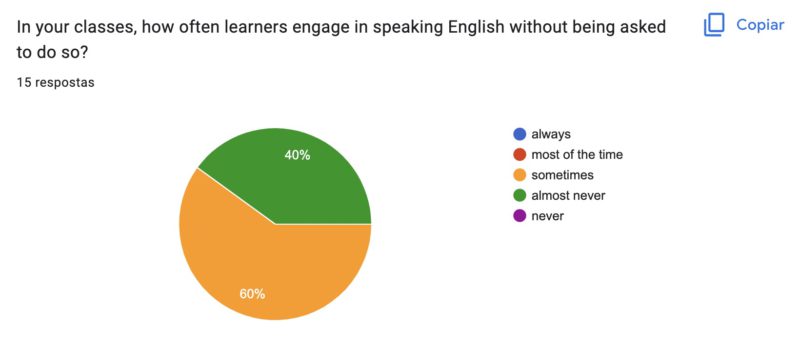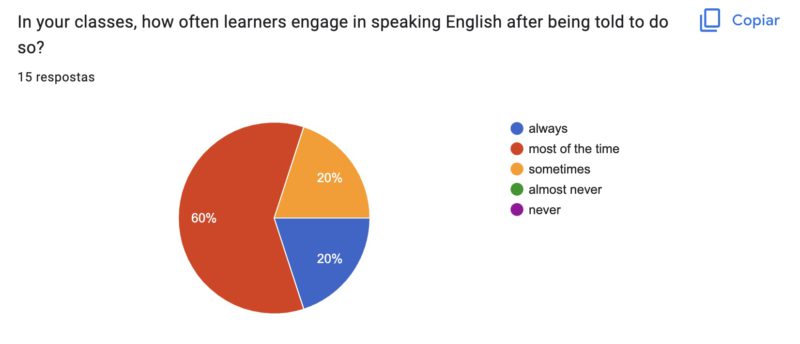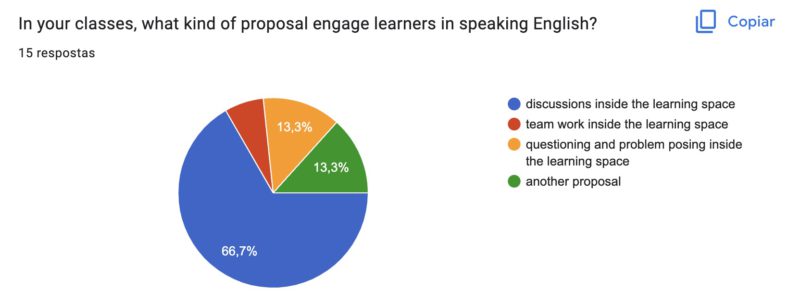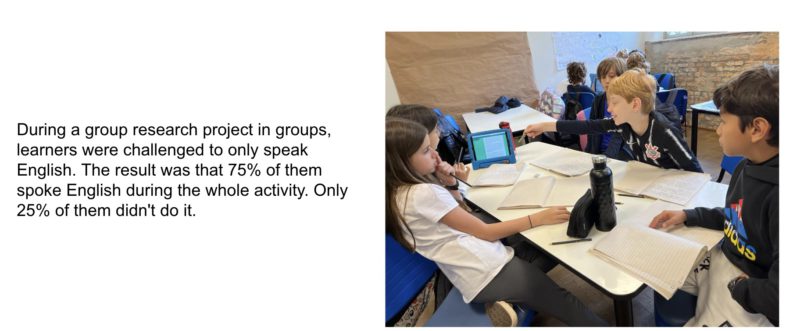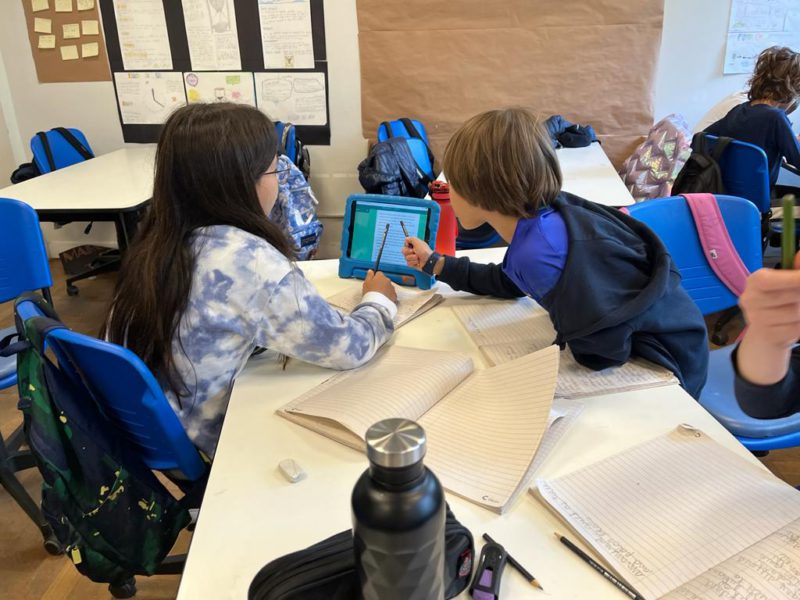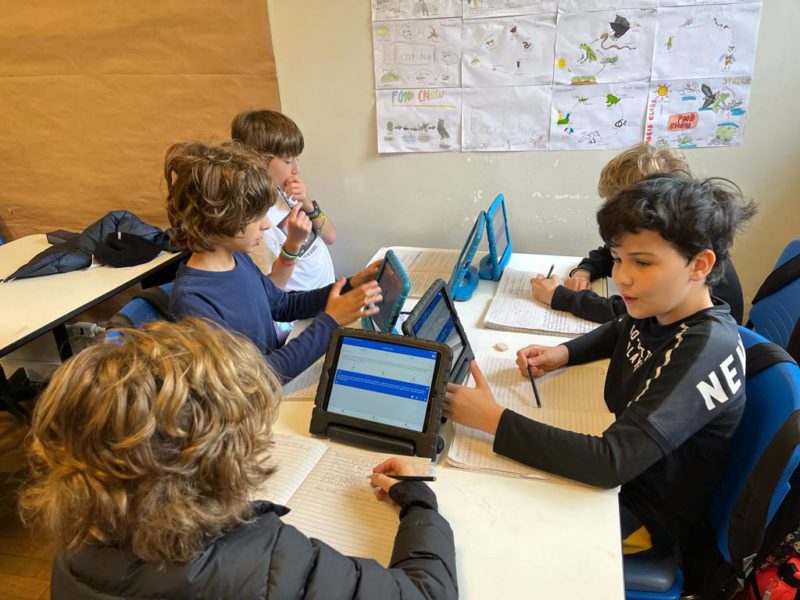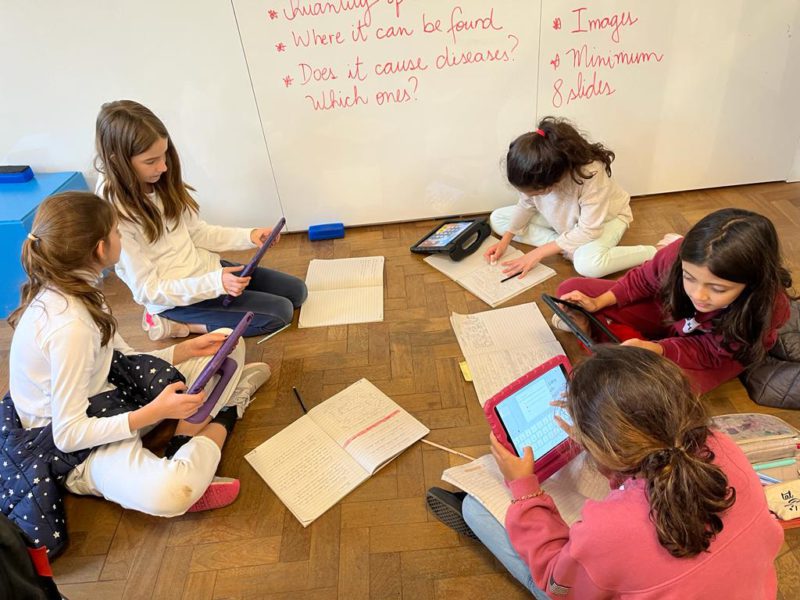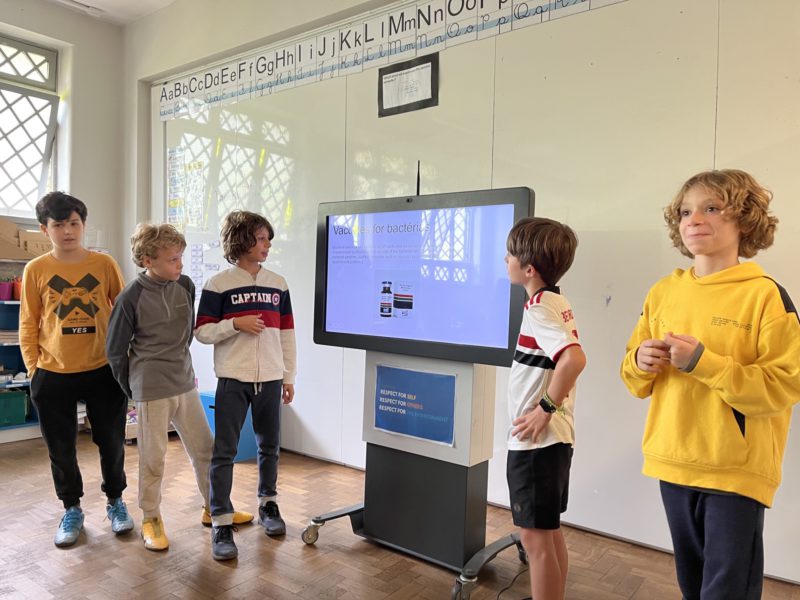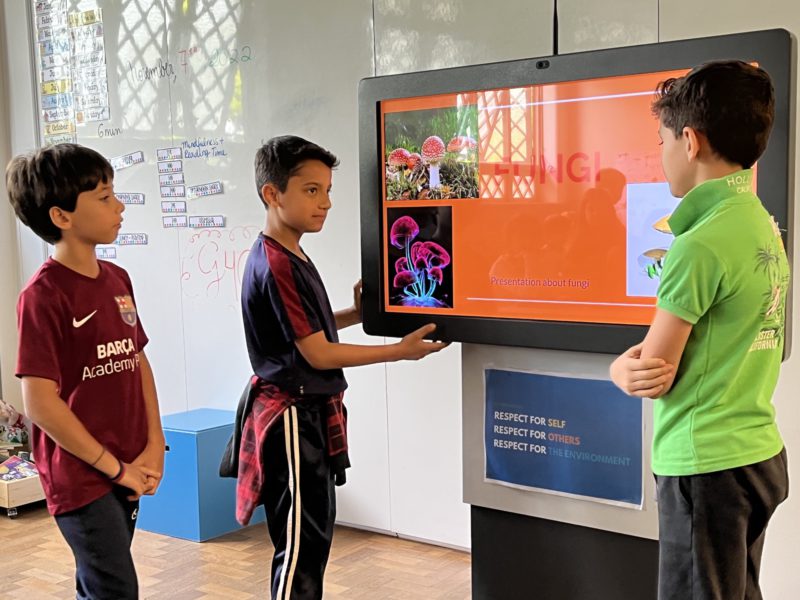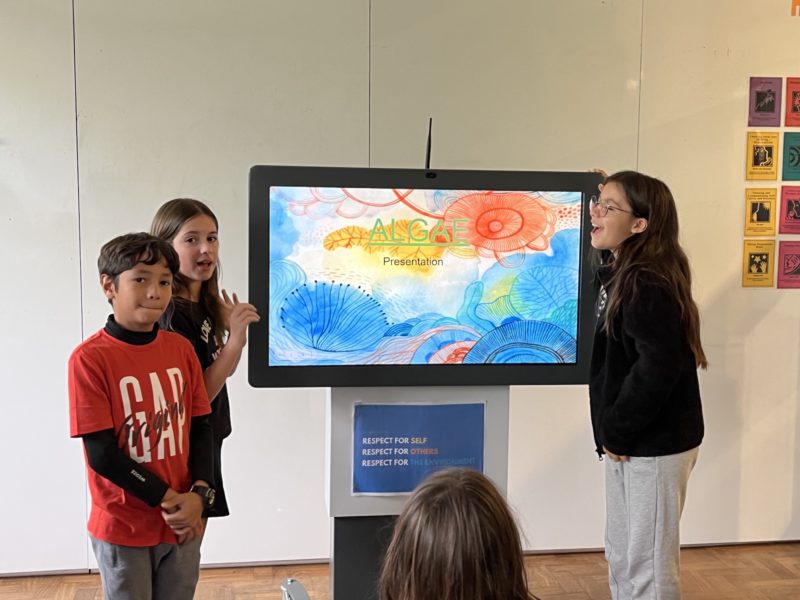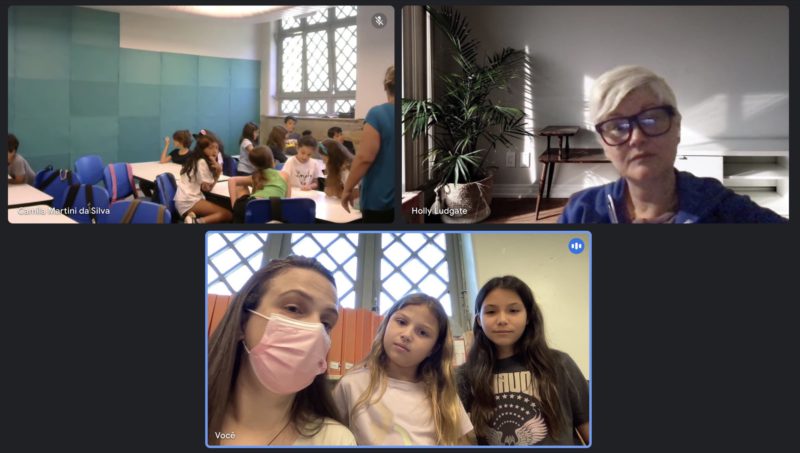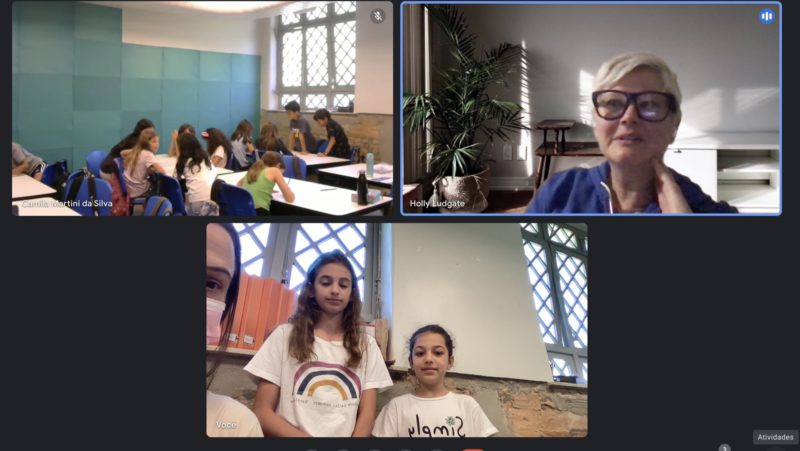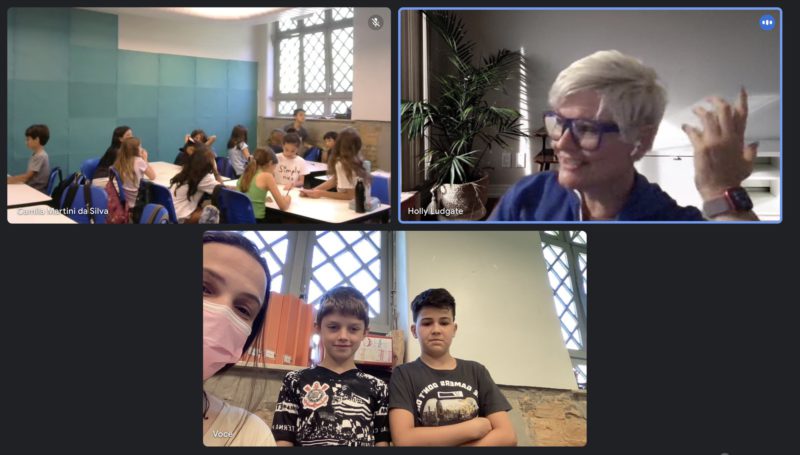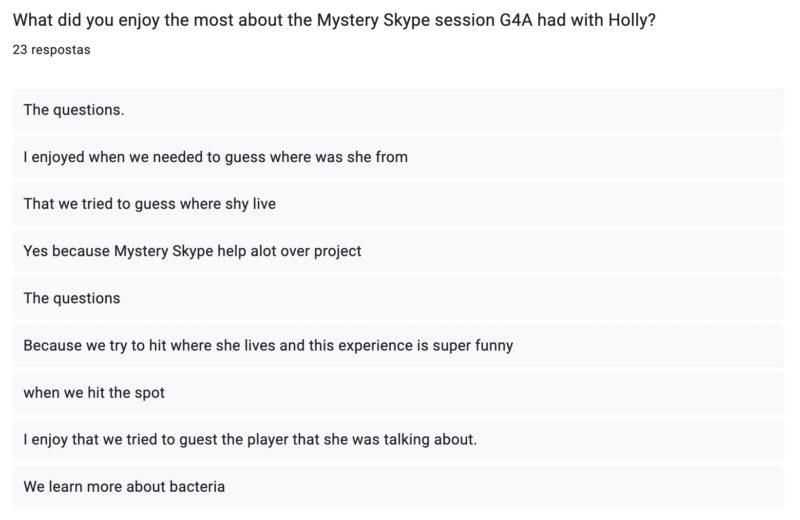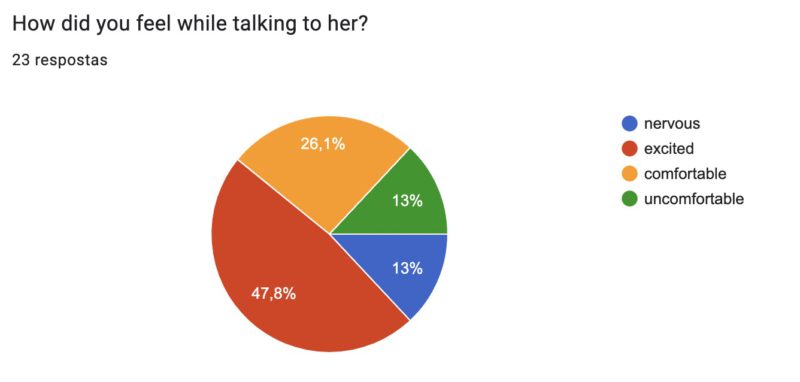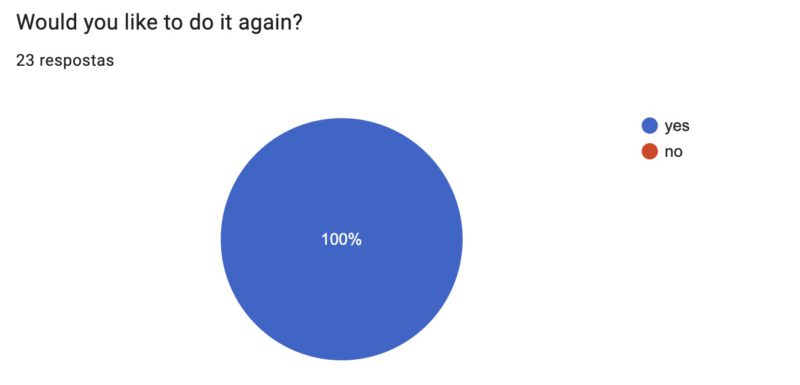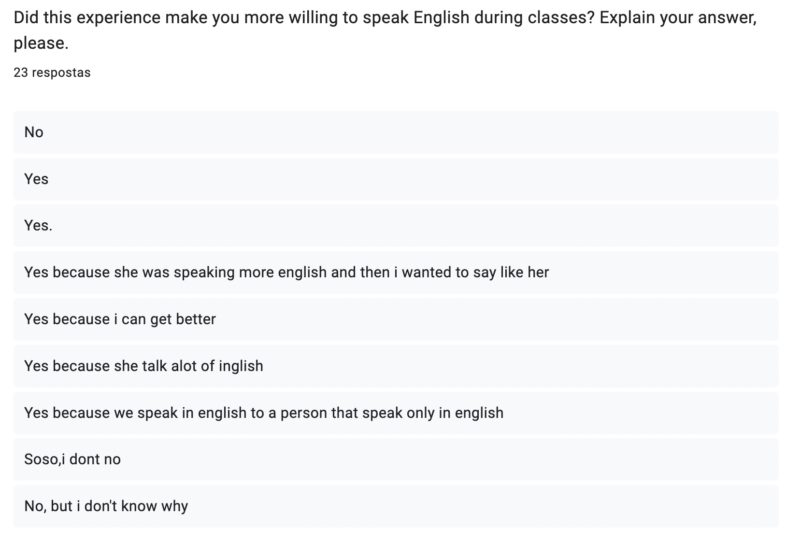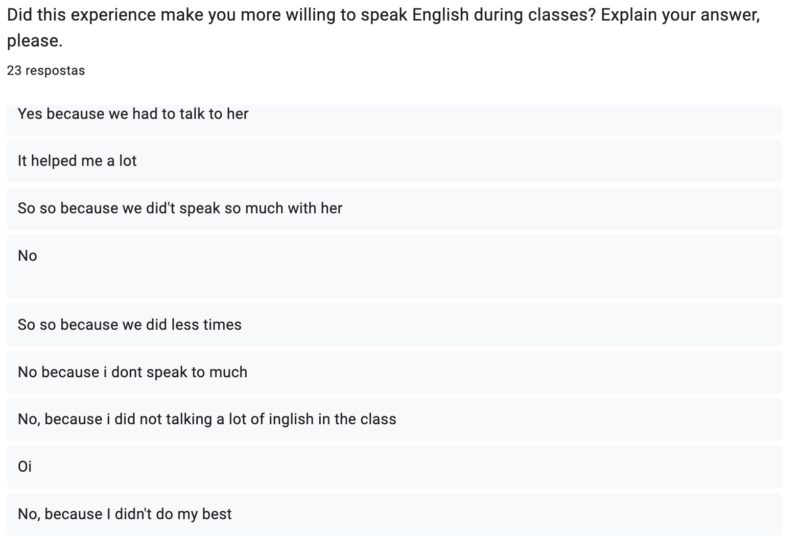Engaging learners in speaking English: Are you ready?
What kind of proposals/activities engage learners in speaking English?
General topic of interest
Speaking English Hability (as a second language)
Learners engagement in taking the risk of speaking English.
Getting learners to use English in the classroom is one of the biggest challenges of teaching. Getting learners engaged in the "task" of speaking English has always been a big concerning. Many times I knew the kid was able to do so, but he/she refused to take the responsible risk of speaking English the way he/she was able. That's why I decided to research about this topic.
Participants
Grade 4A learners and educators will provide data for the research, as well as other Concept educators, who will answer to a Google Form survey.
Literature Review
There is a cultural perspective affected the students unwillingness to speak in the
classroom. Cultural perceptions are at play right from the beginning of the language
acquisition process (Kinyua: 2009) . The expectations in terms of how much language and in
what order it should be acquired are also determined by the culture in which the child is
reared.
STUDENTS’ UNWILLINGNESS TO SPEAK IN EFL
CLASSROOM FROM CULTURAL PERSPECTIVE
Lailatul Husna
Lecturer of English Education
Alfabetização Bilíngue - Benefícios e Mitos na Formação de crianças bilíngues
BOC Editora, 2022.
Data collecting approach
I used pre and post Google forms surveys and my own observations to compare learners perceptions/behavior towards their English speaking skills after being presented to different kinds of proposals/activities, like group researches, a Mystery Skype session with Holly Ludgate, etc.
Data collection tools/resources
For the data collection, I gathered answers from learners and educators through Google Form Surveys, and drew conclusions over their perceptions.
- Google form completed by educators
- Students interacting in English language during a group researching work
- Students interacting in English during their peers presentations
- Mystery Skype Session with Holly
- Google form completed by learners after Mystery Skype session
Emerging results
- About 60% of learners take the risk or speaking English without being required to do so;
- About 75% of G4A learners spoke (only) English during a group research about microorganisms;
- About 50% of G4A learners felt excited while talking to Holly Ludgate during the Mystery Skype session, while 26,1% of them felt comfortable;
- 100% of G4A learners would like to have another Mystery Skyoe session;
- About 80% of G4A learners spoke (only) English while sharing their researches findings with the group.
Reflections
The data I collected with educators tell me the challenge of having learners speaking English is there for all of us (educators). The conclusion I got to is that we, as educators, must share experiences and strategies among each other, because we all face the same difficulty, which is having kids speaking English during classes.
I also realized that learners are more willing to speak English whenever they are challenged to do so, as well as when they want to give visibility to their learning path. Another conclusion was that they just speak English when they see a purpose for doing so, since they know that the educator knows how to speak their mother tongue. Learners must always be challenged/invited to speak English, and their accomplishments and efforts have to be recognized at all times. Giving context and purpose for that task is also a must.



